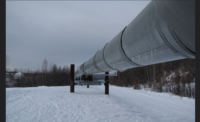Safety improvements benefit everyone, according to the Executive Director of the International Association of Oil and Gas Producers (IOGP), who expounded upon that theme in a speech earlier this year at Oil Gas Denmark’s Task Force Zero (TFZ) event in Esbjerg,
“Everything IOGP does is a work of collaboration,” said Gordon Ballard, in a session devoted to safety.
Lessons from Macondo blowout
He cited the example of IOGP’s Global Industry Response Group (GIRG), which was established to recommend initiatives on major incident prevention, intervention and response based on lessons learned from Macondo in 2010. These recommendations are being implemented, he said. Such cross-industry cooperation is always a good thing ‘whether during good times or bad,’ he added.
While current market conditions can mean tighter budgets and reorganized priorities, Gordon said that in his 30 years in the industry, he’d never known a company to cut corners on safety as a way of economizing.
Transcending competition
“Doing that would be immoral,” he said. “It would also be bad business.’ On the other hand, safety improvements, he said, "benefit everyone, which is why they are a crucial platform for collaboration. So are issues concerning health, corporate social responsibility and sustainability. All of these – which are integral to IOGP’s remit – transcend the concept of competition."
If there is any silver lining in the cloud of low oil prices, he added, it is in the potential for additional areas of cooperation and collaboration. Ballard cited a new joint industry project initiated in conjunction with the World Economic Forum which is aimed at harmonizing certain component specifications among the Association’s members.
“Consider the efficiencies and savings to be achieved if bearings or ball-valves, for example, were standardized rather than produced to individual specs for individual offshore platforms,’ Gordon said.
The biggest challenge
Collaboration is also crucial to the biggest challenge facing the industry: extending and renewing its social license to operate.
“In a disciplined, organized, cost-effective way, we do want to ensure that our industry becomes a recognized part of a debate that so far has been dangerously one-sided. It’s only by working together – by collaborating on this most important topic of all – that we can make a difference. If we don’t succeed in this communications effort, we won’t have an industry to operate safely in.”






